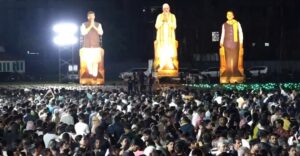Can Playing Loud Music While Driving Lead to a Traffic Fine? Here’s What You Need to Know

Can Playing Loud Music While Driving Lead to a Traffic Fine? Here's What You Need to Know
Owning a car is more than just a convenience these days—it’s often seen as a personal milestone, a reflection of one’s lifestyle and independence. As incomes grow, more and more people are choosing to invest in their own vehicles, opting for the comfort of a private car over the hassles of public transport. In fact, it’s not uncommon to find two or even three cars parked outside a single home today.
And while we all enjoy a good road trip playlist or humming along to our favorite tunes during a drive, there’s a lesser-known aspect of driving that many overlook: the volume of your music. Believe it or not, something as seemingly harmless as loud music in your car can actually get you in trouble with traffic authorities.
Is It Actually Illegal to Play Music in Your Car?
No, listening to music while driving is not illegal. In fact, it’s a common practice that helps many drivers stay relaxed or focused behind the wheel. However, there’s a catch—the volume matters. Playing music at an excessively high volume is where things can go wrong.
There may not be a crystal-clear rule in the books that says “no loud music,” but traffic police can still issue fines if they believe the noise level is causing a distraction or posing a safety risk. So yes, your favorite song on full blast can legally count against you.
Why Can Loud Music Be a Problem While Driving?
There are a couple of solid reasons behind this:
Distraction Risk: Loud music can draw your attention away from the road. If you’re too caught up in the rhythm, you might miss important road signs, sirens, or even another vehicle approaching. This increases the chances of an accident.
Noise Pollution: Blasting music from your car isn’t just distracting to you—it can be annoying or even harmful to people around you. Pedestrians, other drivers, or residents in quiet zones like hospitals and schools could be disturbed by the loud sounds.
That’s why authorities have the discretion to treat loud in-car music as a traffic violation under existing safety and noise regulations.
More Rules Under the Motor Vehicle Act You Should Know
Apart from music volume, the Motor Vehicle Act lays down several important rules related to driving behavior and vehicle usage. Here are a few you should definitely be aware of:
Pressure Horns Can Cost You ₹10,000: Under Section 39/192 of the Motor Vehicle Act, if your vehicle is equipped with a pressure horn (usually louder than standard ones), you’re liable for a fine of up to ₹10,000. Many drivers unknowingly replace their car’s horn with a louder version, not realizing it’s illegal.
Honking in a Silence Zone? That’s ₹2,000: Silence zones are designated near sensitive areas like schools, hospitals, and courts. Honking in these zones can result in a ₹2,000 fine.
Using Phones While Driving Is a Big No: Talking on the phone, texting, or using hands-free devices while driving is strictly prohibited and punishable. That said, using your phone for navigation purposes (like Google Maps) is permitted, as long as it doesn’t interfere with your driving.
What If You Receive a Challan (Traffic Fine)?
If you’re issued a challan for violating any of these rules, it’s important to pay the fine within 90 days. Failing to do so can lead to further complications:
Your vehicle may be blacklisted, meaning it won’t be legally roadworthy.
The matter can escalate to court, which could result in additional legal hassles, penalties, and even repeated court appearances.
It’s always smarter—and cheaper—to settle your dues on time and avoid further trouble.
While traffic rules might feel restrictive at times, they’re ultimately in place to protect you, your passengers, and everyone else on the road. Playing music in your car isn’t a crime, but doing so carelessly—at a volume that distracts or endangers—can have real consequences.










